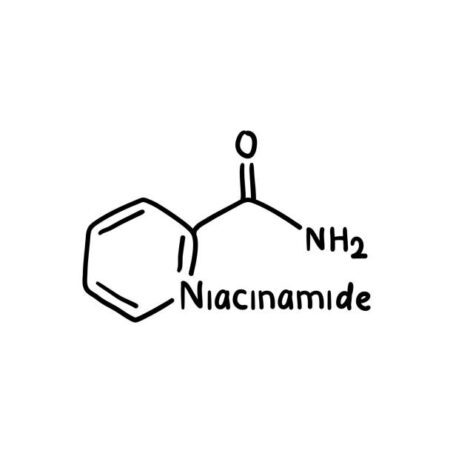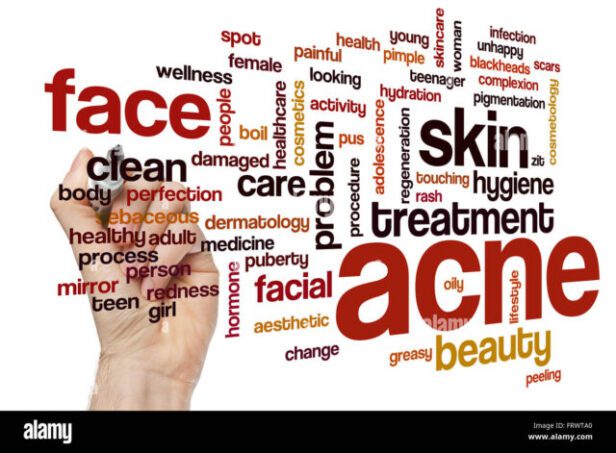Niacinamide, also known as vitamin B3, is a water-soluble vitamin that has been gaining popularity in the skincare industry for its numerous benefits for the skin. It is a versatile ingredient that can help address a wide range of skin concerns including educing inflammation and redness. In this blog post, we will explain the importance of niacinamide and how it can help you achieve a healthier, more radiant complexion.
What is Niacinamide?
Niacinamide is a form of vitamin B3 that plays a crucial role in the body’s metabolic processes. It is found in many foods, including meat, fish, and dairy products, and can also be synthesized in the body from tryptophan, an amino acid found in protein-rich foods. In skincare, niacinamide is a popular ingredient due to its ability to improve the skin’s barrier function, reduce inflammation, and minimize wrinkles. It is also effective at reducing hyperpigmentation and improving overall skin tone and texture.
Benefits of Niacinamide for Skin
Improves Skin Barrier Function
The skin barrier is the outermost layer of the skin, which serves as a protective shield against environmental aggressors, such as UV radiation, pollution, and bacteria. When the skin barrier is compromised, it can lead to dryness, irritation, and inflammation. Niacinamide has been shown to improve the skin barrier function by increasing the production of ceramides, which are essential lipids that help to maintain the integrity of the skin barrier. By strengthening the skin barrier, niacinamide can help to reduce transepidermal water loss (TEWL) and improve the skin’s ability to retain moisture, leading to a softer, smoother, and more hydrated complexion.
Reduces Inflammation
Inflammation is a natural response of the body to injury or infection, but chronic inflammation can lead to a range of skin problems, including acne, rosacea, and psoriasis. Niacinamide has been shown to have anti-inflammatory properties that reduces inflammation in the skin. It works by inhibiting the production of pro-inflammatory cytokines, which are molecules that contribute to the inflammatory response. By reducing inflammation, niacinamide can help to calm irritated skin and improve overall skin health.
Minimizes the Appearance of Fine Lines and Wrinkles
As we age, the production of collagen and elastin, which are essential proteins that keep the skin firm and elastic, begins to decline. This can lead to the early surfacing of wrinkles and saggy skin. Niacinamide has been shown to stimulate the production of collagen and elastin. It also has antioxidant properties to protect the skin from UV radiation and pollution.
Reduces Hyperpigmentation
Hyperpigmentation is a common skin concern that can be caused by a range of factors, including sun exposure, hormonal changes, and inflammation. It is characterized by the appearance of dark spots or patches on the skin. Niacinamide has been shown to be effective at reducing hyperpigmentation by inhibiting the transfer of melanin, which is the pigment that gives skin its color, to the skin’s surface. It also helps to break down existing melanin deposits, leading to a more even skin tone and brighter complexion.
Improves Overall Skin Tone and Texture
In addition to its specific benefits for individual skin concerns, niacinamide also has a general positive impact on overall skin tone and texture. It helps to regulate sebum production, which can help to prevent the development of acne and other skin conditions. It also has a gentle exfoliating effect, which can slough off dead skin cells to reveal smoother and brighter skin.
Using Niacinamide in Your Skincare Routine
Now that we’ve discussed the benefits of niacinamide for skin, let’s talk about how to incorporate it into your skincare routine.
Niacinamide can be found in serums, moisturizers, and toners. When selecting a product containing niacinamide, look for a concentration of 2-5%, which has been shown to be effective for improving skin health.
To use niacinamide in your skincare routine, simply apply the product after cleansing and toning, and before moisturizing. You can use it in the morning and evening, or as directed by the product instructions.
It is important to note that niacinamide is generally well-tolerated by all skin types, but as with any new skincare product, it is recommended to patch test first to ensure that you do not have an adverse reaction.
Conclusion
In conclusion, niacinamide is a versatile and effective ingredient that can benefit a wide range of skin concerns. It improves the skin’s barrier function and reduces inflammation, reduces hyperpigmentation, and improves overall skin tone and texture. By incorporating niacinamide into your skincare routine, you can achieve a healthier, more radiant complexion. Whether you are struggling with acne, hyperpigmentation, or the signs of aging, niacinamide can help to improve your skin’s health and appearance.




